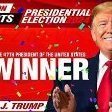Hacking, China's maritime claims overshadow Xi's US visit
-
Recently Browsing 0 members
- No registered users viewing this page.
Announcements
-
Topics
-
-
Popular Contributors
-
-
Latest posts...
-
33
Seatbelts
Plain old seat belt is poor protection. One is likely to slam upper body and head into steering wheel etc. Belt with Shoulder harness is so much better. I had one of my cars totaled when a car plowed into me. Man I actually had black and blue bruise marks on my body from the shoulder harness strap. Definitely would not have fared well had I slammed into the steering wheel -
18
Crime 75-Year-Old Man Beats 80-Year-Old Man to Death in Love Triangle
"playing games" with men is not a crime. you're exaggerating and your hatred for women is painfully obvious. Same thing happened to me in my last workplace. I just got the hell out of there. -
61
Virologist network reaffirms support for mRNA vaccine platform
Both my girlfriend and I got the vaccine along with 4 boosters. Then she brought Covid home from work three times. She tested positive, but was asymptomatic, while I tested negative each time. So far you have only posted only negative results, while ignoring the millions of vaccinated that suffered no bad effects. -
10
Bank account frozen
If it was me I would "visit my branch with my identification". -
10
Bank account frozen
Bangkok Bank. My last extension was obtained in the first week of June this year. I am not in Pattaya right now (quite far from it). I called to my branch. They did not even ask for my account number. In a very bad English I was told that foreigners should visit the bank and that it is Visa related. Again - they did not try to identify me on the phone. Then I asked if I can go to the local branch (not in Pattaya) and they told me that I can. I will go to the bank in an hour or two. -
47
FBI redacted Trump's name in Epstein files
Poll: Trump Approval Surges to 54 Percent After Meeting with Putin https://www.breitbart.com/politics/2025/08/18/poll-trump-approval-surges-to-54-after-meeting-with-putin/ The good patriot citizens of the United States really do not give two tiny terds about Epstein or files. What they care about is that President Trump, the master negotiator, is in the process of ending the insane war in the Ukraine. This is huge! Meanwhile the left wing zealots keep trying to regurgitate old news.
-
-
Popular in The Pub


.thumb.jpg.3ee24d9400fb02605ea21bc13b1bf901.jpg)





.thumb.jpg.bc523c85a8d558dbc282dca7a2e602c9.jpg)


Recommended Posts
Create an account or sign in to comment
You need to be a member in order to leave a comment
Create an account
Sign up for a new account in our community. It's easy!
Register a new accountSign in
Already have an account? Sign in here.
Sign In Now